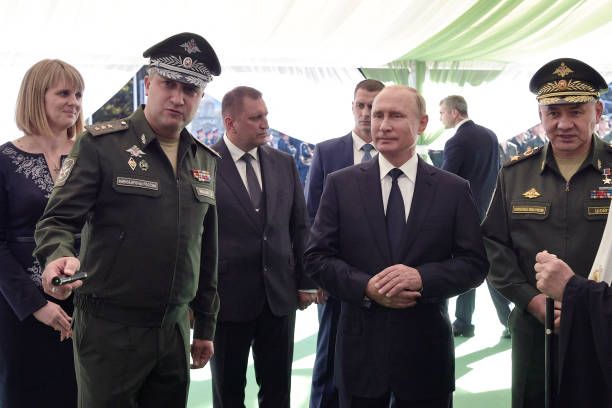Russia’s Deputy Defense Minister Timur Ivanov was detained on April 23 on suspicion of receiving a bribe, under part six of Article 290 of Russia’s criminal code. Ivanov, who oversees the construction of military facilities in Russia, is facing allegations of accepting bribes exceeding 1 million rubles. The Investigative Committee announced that an investigation is ongoing and did not provide specific details on the charges. If convicted, Ivanov could face up to 15 years in prison. This incident comes after Ivanov was previously investigated by the Anti-Corruption Foundation for profiting from construction projects in occupied Mariupol, Ukraine.
Alexei Navalny, a prominent opposition leader in Russia and a vocal critic of corruption and President Vladimir Putin, was the founder of the Anti-Corruption Foundation that investigated Ivanov’s alleged corruption. Navalny’s death on February 16, 2024, while being held in a Russian penal colony, has raised international concerns about political persecution in Russia. Navalny was convicted on charges of extremism, which have been widely seen as politically motivated. The sanctions imposed on Ivanov by Western countries due to his involvement in Russia’s invasion of Ukraine further highlight the ongoing political tensions in the region.
Recent developments in the Ukraine war include reports of Russian forces using chemical weapons to storm the town of Ocheretyne. The situation is described as “difficult”, indicating the severity of the conflict. The US is preparing a $1 billion military aid package for Ukraine, while Greece is reportedly ready to provide at least one Patriot missile defense system to Ukraine. Amidst these developments, Ukraine has suspended consultations on key issues, pointing towards escalating tensions and the need for international support.
The allegations against Ivanov and the use of chemical weapons in Ukraine underscore the complex geopolitical dynamics at play in the region. The ongoing war has not only resulted in humanitarian crises but has also raised concerns about the use of prohibited weapons and corruption within the Russian government. The international community continues to monitor the situation closely and provide support to Ukraine in its efforts to defend against Russian aggression. The detention of a high-ranking Russian official on bribery charges further highlights the internal challenges faced by Russia amid the external conflicts.
The role of investigative journalism, as demonstrated by the Anti-Corruption Foundation’s work on Ivanov’s case, remains critical in exposing corruption and holding officials accountable. The death of Navalny, a prominent advocate for transparency and accountability, serves as a reminder of the risks faced by those who challenge the status quo in authoritarian regimes. The international response to these developments, including sanctions and military aid to Ukraine, reflects the global concern over Russia’s actions and the importance of upholding democratic values in the face of aggression and human rights violations.
As the conflict in Ukraine continues to escalate and revelations of corruption and human rights abuses emerge, the need for independent journalism and international support becomes increasingly vital. The detention of Ivanov and the challenges faced by Navalny exemplify the high stakes involved in speaking out against corruption and injustice. By supporting independent journalism and advocating for transparency and accountability, individuals can play a crucial role in promoting democracy and fostering a more just and equitable society, both in Ukraine and around the world.


